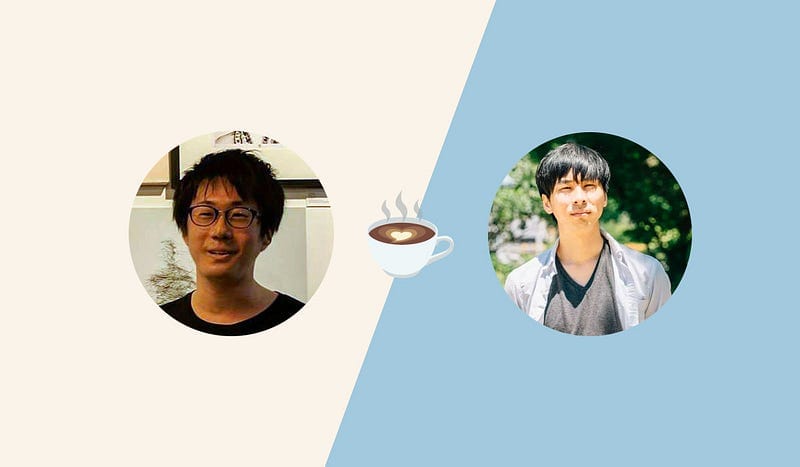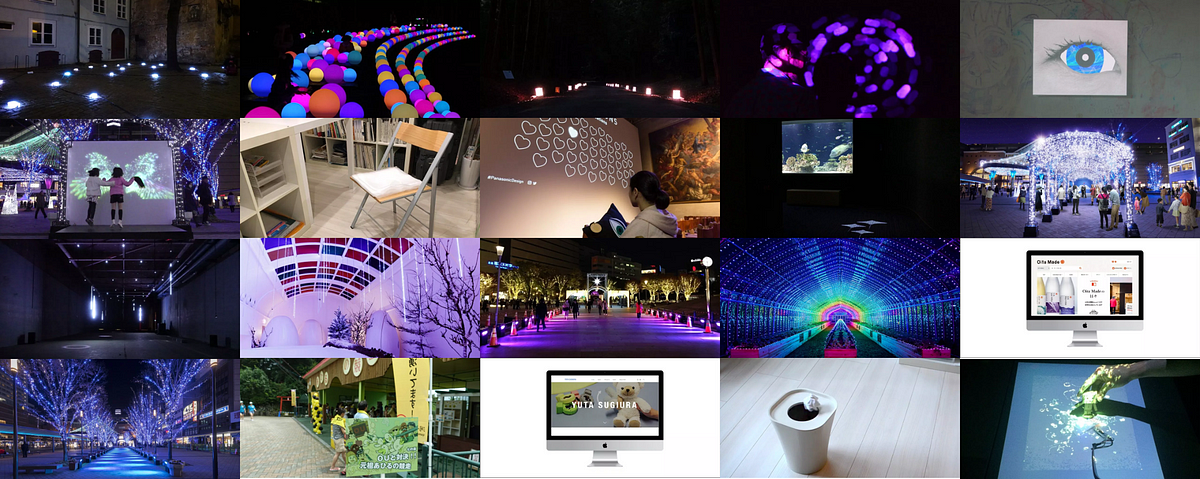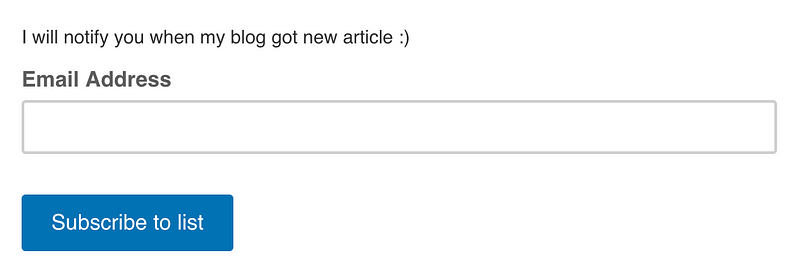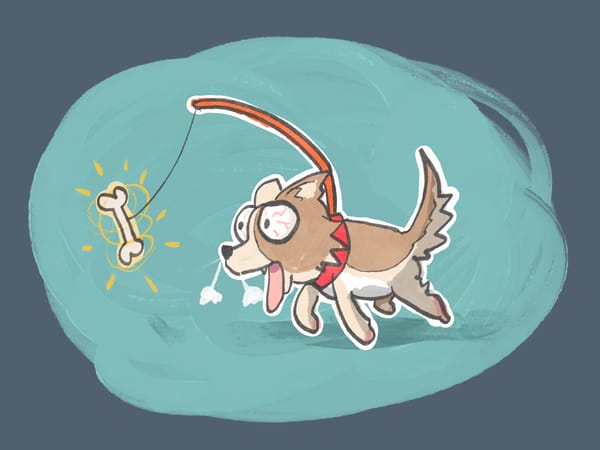Interview with Yuki — How He Works as a Media Artist
How he gets clients and earns money by doing what he loves.

Hello, it’s Takuya, a solo developer of Inkdrop.
I met my friend, Yuki, recently. It’s been over 6 years since we last met. He runs his own company alone based in Hukuoka, Japan. He creates interactive spaces and experiences using technologies. I think it’s cool that he creates them as his primary business. I am curious about how he gets clients and earns money so I asked some questions to him. I would like to share a note of our conversation because it was very inspiring to me :)

Yuki’s Talk
- was on his way to go back home from an exhibition in Wakayama.
- worked at TeamLab and has established his company in Tokyo, and moved to Fukuoka after a few years. Leaving from Tokyo was not a big problem. He visits Tokyo twice or three times a month.
- does everything necessary from finding new clients, planning to coding. His skill widely covers from hardware, web to mobile apps. Sometimes he outsources some design works.
- How he finds clients: 1) Send emails to many events or their organizers. 2) Upload his works on Vimeo. 3) Through his friends. 4) These days he sometimes gets contacts from clients.
- How he estimates a work: 1) He always cares about how to make the best experience within his client’s budget. 2) It’s more interesting if there are some limitations to accomplish. That’s why he loves client works. 3) Includes materials and gears as expenses beforehand. 4) It’s not a good idea to estimate based on workload because it’s difficult to compare with other works like ordinary software developments. Besides, you will get paid cheaper as you finish fast. 5) Use his past works.
- is doing only what he wants to do. He is so happy because he gets paid for the things he loves. He usually proposes concepts to clients. Only 20–30% works are engineerings that he just builds what they say. He only builds what he wants to see and wants to do. If there are different directions found between him and his clients, he tries to persuade them. He usually tells what happens if it’s changed as they suggest. Imagine that, in app development, a client suddenly asks to change UI from simple to rich.
- About the installation exhibited at a restaurant in London: They contacted him first. He accepted the work in spite of the fact that a deadline of other work overlaps with it because he was so excited with it. He finished the work without sleeping. He doesn’t hesitate to get it if it sounds exciting.
- His first employee might be a designer from Chile. She found his recruitment on the web. She doesn’t speak Japanese. He decided to work with her because her careful communication seems great. It will be hard to employ a person from other country but it will definitely be fun.
- always does 120% of the client’s expectations. He doesn’t need to motivate himself to do so because it’s what he loves to do. He likes to watch children find an unexpected way to play with his installation. He sometimes comes up with an idea and implements it immediately at the event venue. That would make his client happy.
Takuya’s Talk
- About subscription model: People have started enjoying a conference called Adobe Max so much than ever before since Adobe has switched their business to the subscription model. If it was still lifetime pricing, people wouldn’t enjoy like that because they always have to worry about their budgets, like Apple’s events. People can fully enjoy it if they are already paying a subscription. It would be the same for personal developments. So users will be excited about announcing roadmaps of your app and they are happy to join the discussion for it.
- Who to employ: The most likely person would be a user who made plugins. Because he/she already understands the app’s concept and has sufficient skill to develop. It’d be good to ask him/her to help some tasks first before full-time employment.
- About full-stack skill: Developers like us who can do anything will be more valuable. Because techniques required to build apps or services are evolving more complex. It’s valuable to understand each technique deeply and to be able to combine them well. So I guess there will be two types of people likely to survive: full-stacks and specialists in a particular domain. Otherwise, it will be hard because of many competitors.
Don’t Hesitate to Do Hard Work If It Looks Fun
I found that Yuki cares much about his momentum for his work. He would rather take lots of efforts immediately than be worried about the future. To make something touching, you have to embrace your momentum (It’s called ‘emo-i’ in Japanese).
The day you do only what you love will come true if you keep trying to do what you love by removing obstacles one by one. It’s a common point I see in people enjoying their work. There should be a lot of efforts to reach there, but that’s not a big deal — you don’t have much time to worry about it.
It’s funny that we say “I don’t know what I’m doing next year.” Every year since I left a company, something unexpected, unimaginable happens. He agrees. We don’t have any idea what we will do next year until then. Rather, we enjoy such indefinite factors. That’s exactly what we want because working in a company was boring.
I’m looking forward to talking with him again.
- Non-classic, inc. https://non-classic.jp/
- Inkdrop https://www.inkdrop.app/





